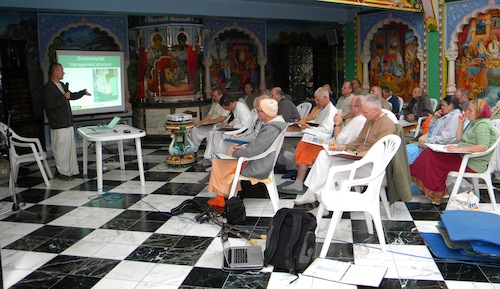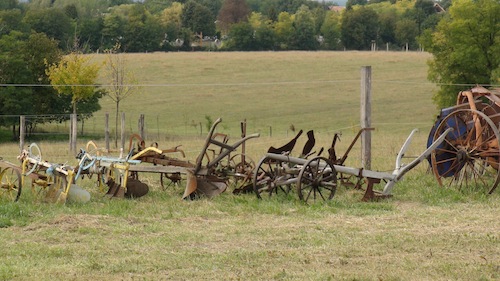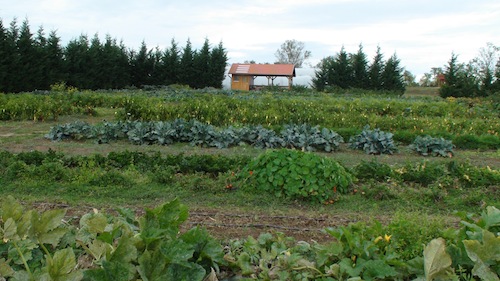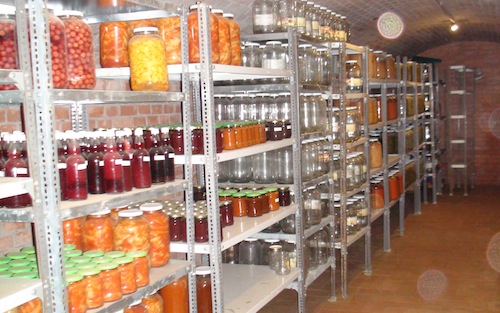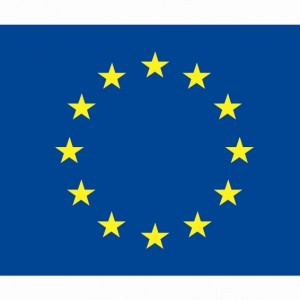 From October 9th to 16th, sponsored by the European Commission’s Lifelong Learning Programme, the Eco Valley Foundation of Hungary held a one-week workshop called The Pillars of Sustainability – Developing Small Communities Aiming at Self-sustainability in Europe at their primary model community, Krishna Valley in the South-Western part of the country. Krishna Valley, situated in a beautiful rural Hungarian setting and home to 130 residents hosted for one week 20 attendants from 14 European countries.
From October 9th to 16th, sponsored by the European Commission’s Lifelong Learning Programme, the Eco Valley Foundation of Hungary held a one-week workshop called The Pillars of Sustainability – Developing Small Communities Aiming at Self-sustainability in Europe at their primary model community, Krishna Valley in the South-Western part of the country. Krishna Valley, situated in a beautiful rural Hungarian setting and home to 130 residents hosted for one week 20 attendants from 14 European countries.
The week of the Workshop consisted of a mixture of lectures, workshops, discussions and practical field trips to inspect the different aspects of the community, such as the cowshed, ox-powered technology, school, fields, vegetable patches, grain and fruit storages, waste management, infrastructure, the small cottage industries and oil-pressing machines, the residential areas, and of course, the central building with its restaurant.
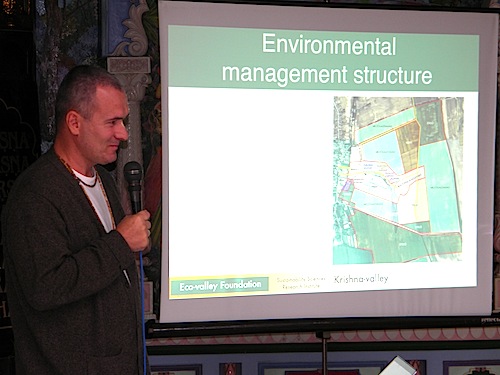
During the week the participants were trained in several topics of social, economical and environmental stability in rural farm communities, using Krishna Valley as the example for such a community in order to extract and possibly expand its principles more generally to the whole of Europe.
Every day started with a presentation on one of the topics of sustainability, such as what are the needs to achieve social stability, the need for a constitution and clear mission, how to manage and control the economy in a self-sufficient community and the practical aspects of environmental and ecological sustainability and self-sufficiency. All these were used to develop learners’ systematic understanding of social, economic, and environmental correlation of community management and a skill for systematic approach. This was followed by workshops where participants sat together in groups to discuss how to practically realize a similar community of their own dreams.
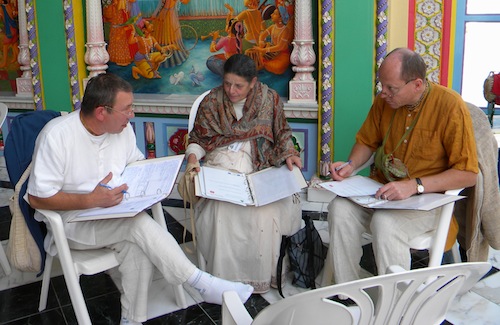
The field trips in the afternoons took the participants to different areas of the model community, such as the vegetable fields, vegetable and grain storages, the pastures, the cowshed, the community’s own school, the private residential areas, the reed-bed zone sewage system, etc. The participants appreciated how the community functions 90 percent without electricity with all heating done by wood burners using wood from the community’s own forests.
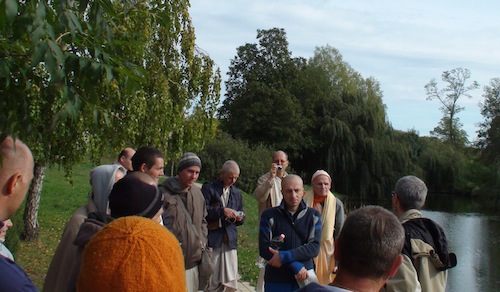
The last part of the day was devoted to a game fashioned by Zoltán Hosszú, head of Eco Valley Foundation and other members of the foundation’s team, where participants in a kind of strategy game on the “Real Pillars of Sustainability” (that was the name of the game itself) amused themselves with questions and quandaries from real life management experienced by themselves and other community managers’ leadership over the years.
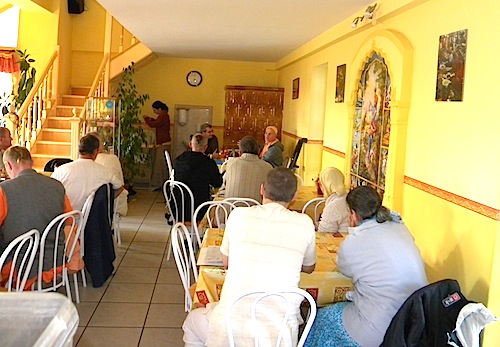
Interesting was also one of the days when during a field trip participants went outside the community into the surrounding village and neighbouring area. Here another 60 members of the community have bought houses and are gradually having a very positive influence in this somewhat impoverished part of Hungary.
The six days seminar was concluded by an address of the community leader, Sivarama Swami who stated that small-scale communities could survive and develop only by supporting each other as individuals and as communities.
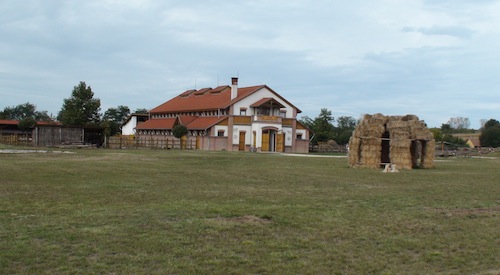
Krishna Valley briefly: the community was started in 1993 on 150 hectares of empty field and pastures. Since then this has been increased to 266 hectares, where residents have constructed 53 buildings for residential purposes, barns for the animals, an administration building, a restaurant and of course, a central building.
Pasturing lands and vegetable fields have been established, wells dug and around 300 000 trees planted establishing a botanic garden and a few forests. The farm community has attracted a lot of attention, not only from their society, but also from the greater public, including the 30 000 tourists who visit every year, as a very ideal attempt to establish an ecologically and socially self-sustaining community that can be a model for similar communities around the world. It is the hope of the community to be able to facilitate similar seminars and conferences for all interested people over the years to come.

